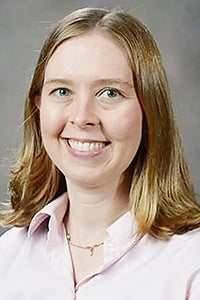Ferguson: Follow this advice to choose storm-resistant trees
Published 12:06 pm Friday, September 24, 2021

- Mary Helen Ferguson
|
Getting your Trinity Audio player ready...
|
Fall is one of the best times to plant most types of containerized trees and shrubs, and if you’re making decisions about planting large-growing trees, storm tolerance may be at the forefront of your mind.
Researchers from the University of Florida have studied tree survival during hurricanes and compiled lists of trees considered to have greatest, least, and intermediate wind resistance.
Three highly wind-resistant species are among our most iconic Louisiana trees: bald cypress, live oak, and southern magnolia. It’s unsurprising that these Deep South natives would be among the best withstanders of hurricane-force winds. American holly and pond cypress, a close relative of bald cypress, are two others that show good tolerance of high winds.
On the other end of the spectrum are trees considered to have the least wind resistance. These include laurel oak, southern red oak, water oak, pecan, Chinese elm, tulip poplar, spruce pine, and Leyland cypress.
While storm-tolerance is more of a concern when choosing large trees, since they have more potential to cause damage, smaller trees also vary in wind resistance. Bradford pears are well known for breaking apart in storms. They tend to have included bark in the narrow crotch angles between their branches and trunks, and this results in weak junctions.
On the other hand, small trees and shrubs with good wind resistance include crape myrtle, yaupon holly, inkberry holly, dahoon holly and sparkleberry.
Some palms tend to hold up quite well in strong winds, but keep cold-tolerance in mind when choosing palms. Sabal or cabbage palm and pindo or jelly palm have good wind resistance and are cold tolerant enough for Washington and Tangipahoa parishes.
Of course, any tree or palm can fail, so be sure to keep in mind how large a plant is expected to get when choosing a location for a particular plant, or when choosing a plant for a particular location.
Let me know if you have questions.
Dr. Mary Helen Ferguson is an Associate Extension Agent with the LSU AgCenter, with horticulture responsibilities in Washington and Tangipahoa Parishes. Contact Mary Helen at mhferguson@agcenter.lsu.edu, 985-839-7855 (Franklinton) or 985-277-1850 (Hammond).




